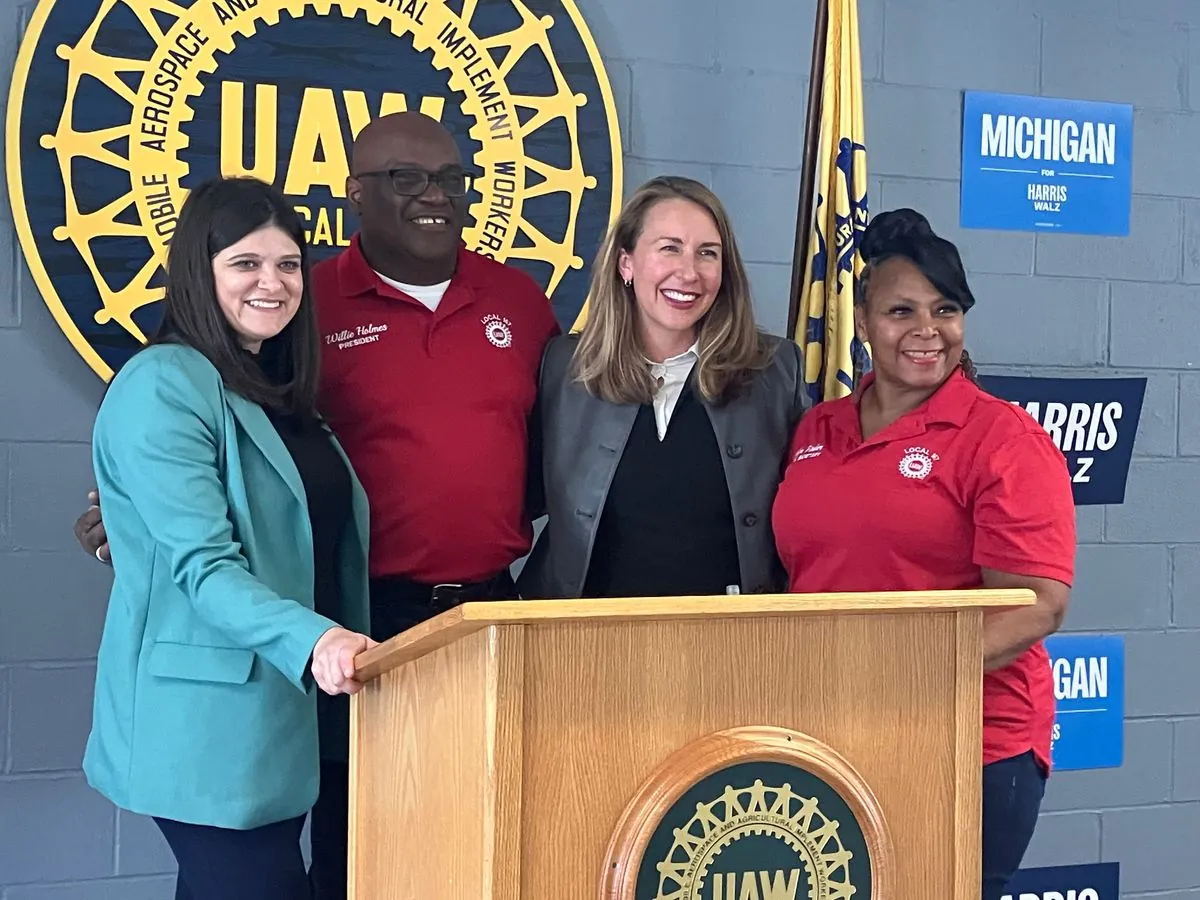In a strategic move to secure the working-class vote, Vice President Kamala Harris is set to visit Flint, Michigan on October 4, 2024. This visit comes at a crucial time, as the presidential race intensifies and union allegiances show signs of shifting.
Flint, a city known for its strong union presence and the infamous water crisis that began in 2014, serves as a symbolic backdrop for Harris's appeal to blue-collar workers. The United Auto Workers (UAW), founded in Detroit in 1935, has historically been a powerful force in Michigan politics, making the state a key battleground in recent presidential elections.
The vice president's visit follows a significant development in labor relations. On October 3, 2024, dockworkers suspended their strike, potentially averting economic disruption. The United States boasts 29 ports handling over 1 million tons of cargo annually, with the Port of Los Angeles being the busiest container port in North America. Harris commented on the situation:
"This indicates progress toward a strong contract and represents the power of collective bargaining. Dockworkers deserve a fair share for their hard work getting essential goods out to communities across America."
This statement underscores the importance of collective bargaining, a right guaranteed by the National Labor Relations Act of 1935. However, Harris faces challenges in securing union endorsements. The International Association of Fire Fighters, chartered in 1918, and the Teamsters, founded in 1903, have opted not to endorse a candidate this year, despite supporting Joe Biden in 2020.
Despite these setbacks, Harris has garnered support from several major unions, including the AFL-CIO, the largest federation of unions in the United States. The United Auto Workers, which led a historic sit-down strike against General Motors in 1936-1937, has also endorsed Harris.
The shifting landscape of union support reflects broader changes in American politics. While Democrats have traditionally enjoyed strong backing from labor organizations, Republicans are making efforts to appeal to blue-collar workers. In a recent rally, Donald Trump claimed that Republicans are now "the party of the American worker," despite his anti-union record as president.
This political realignment is evident in voting patterns. In the 2020 election, 56% of union voters supported Biden. However, Trump secured 62% of white voters without college degrees, a demographic often associated with blue-collar work.
The Biden administration has consistently demonstrated support for unions, with the president even joining a UAW picket line in 2023. This aligns with the Democratic Party's historical stance on labor issues, dating back to the Wagner Act of 1935, which established the National Labor Relations Board.
As the campaign progresses, labor relations could become a central issue. The recent dockworkers' strike suspension highlights the ongoing importance of worker rights and fair compensation. These concerns have been at the forefront of American labor movements since the formation of the first labor union in 1794 by shoemakers.
The outcome of this election may hinge on the ability of candidates to address the needs and concerns of working-class voters. With the percentage of American workers belonging to unions declining since the 1950s, both parties are vying for the support of this crucial demographic.
As Harris visits Flint and Trump campaigns in Georgia and North Carolina, the battle for the working-class vote continues. The coming weeks will reveal whether traditional union allegiances hold or if a new political landscape emerges in the realm of labor relations.
